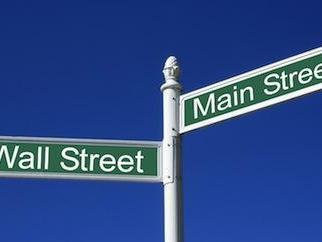7 Survival Skills from a Small Town Business
The giant world that we once knew has become a lot smaller in the past several years. Customers who were once distant our now just a click away, and customers who would have never met are now joined together over the web discussing the quality of our business. The economy has crushed us with tighter lending and lower consumer demand. Society has made a shift towards supporting small and local businesses.
These changes feel a lot like a small town. Small town businesses have long been dealing with customers sharing their personal experiences at the local coffee shop, tight local lending and low consumer demand.
So if the business world is more like a small town, can we learn anything from small town businesses that would be useful? Yes! Here are seven specific principles that work for all small business today.
1. Plan for zero.
Jim Collins, author of Good to Great, said, “As soon as you can, I mean before you grow really big, your first priority should be to reach a point where you have enough cash that you could go a whole year without revenues if you had to because someday, you might have to.”
The fact is, there are going to be tough years ahead - times when the money just isn't coming in -- periods of no growth. Just like our farmer ancestors had to plan for a lost crop, we have to plan for no income. The small town businesses that survive are built with a plan to survive those tough times. This is true now for all businesses.
2. Spend creative brainpower before spending dollars.
Today the internet is full of DIY projects to save money. Being creatively frugal is second nature to small town businesses. We'll find ways to re-use almost anything - window displays with used product, walls painted with what's left from our home project. We also get creative about financing, using cooperatives, community ownership, and even fund raisers to keep our businesses going. Minneola, Kansas, just reopened their grocery store by using community ownership. Businesses in urban areas can adapt this creativity, too.
3. Multiply lines of income to diversify your risk.
Another technique coming from our farming heritage -- farmers used multiple crops to spread out their risk. If the corn doesn't bring any income, maybe cattle will do well that year. Any urban business can use the same techniques, and add lines of income within their area of expertise. Besides consulting, you might offer group training or newsletters.
4. Work anywhere
Being located in a small town doesn't limit a business to a tiny geography. Look at L.L. Bean, based in Freeport, Maine or Busbee's Truck Parts in Wagener, SC. They do business all over. The revolution in shipping and commerce has meant the loss of geographic advantage and disadvantage. Small town businesses have been poking holes in limitations ever since. Every business needs to adapt the "anywhere, anywhen" technologies that let them change their game.
5. Treat customers like community.
Word spreads quickly among customers. One bad experience with a merchant can be told and retold all over the web in no time. Small town businesses have been dealing with this problem long before the web came out. But now, every small business faces the same type of intensive communication between and from customers. The best businesses have learned to thrive in this environment by treating all customers well, respecting them as individuals, and by being part of the online community.
6. Be proud of being small.
There has never been a better time to be a small business. A survey by American Express showed that 4 out of 5 Americans think small businesses give better service than big business. Customers are ready to trust you more than big businesses.
7. Build your local connections.
Now that American consumers are ready to support local businesses, this a great time to flaunt a local accent -- tell the story of how you are connected to the local community, and share what makes your business something special. These are all small town business characteristics that apply to small business everywhere now.

